Earliest Computers
The first counting device was used by the primitive people. They used sticks, stones and bones as counting tools. As human mind and technology improved with time more computing devices were developed.
The word 'Computer' is an old word that has changed its meaning several times in the last few centuries. Originating from the Latin, it meant someone who computes. The computer remained associated with human activity until about the middle of the 20th century when it became applied to a programmable electronic device that can store, retrieve, and process data. Today, the word computer refers to computing devices, whether or not they are electronic, programmable, or capable of storing and retrieving data.
Following are some of the earliest computing devices;Abacus
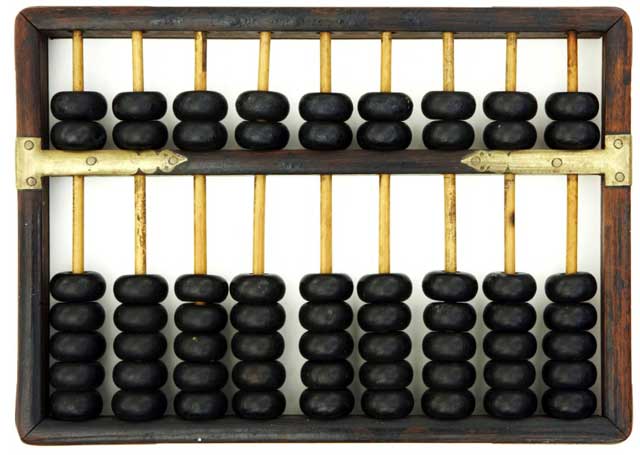
The history of computer begins with the birth of abacus which is believed to be the first computer. It is said that Chinese invented Abacus around 4,000 years ago. It was a wooden rack which has metal rods with beads mounted on them. The beads were moved by the abacus operator according to some rules to perform arithmetic calculations.
Napier's Bones

It was a manually-operated calculating device which was invented by John Napier (1550-1617) of Merchiston. In this calculating tool, he used 9 different ivory strips or bones marked with numbers to multiply and divide. So, the tool became known as "Napier's Bones. It was also the first machine to use the decimal point.
Pascaline
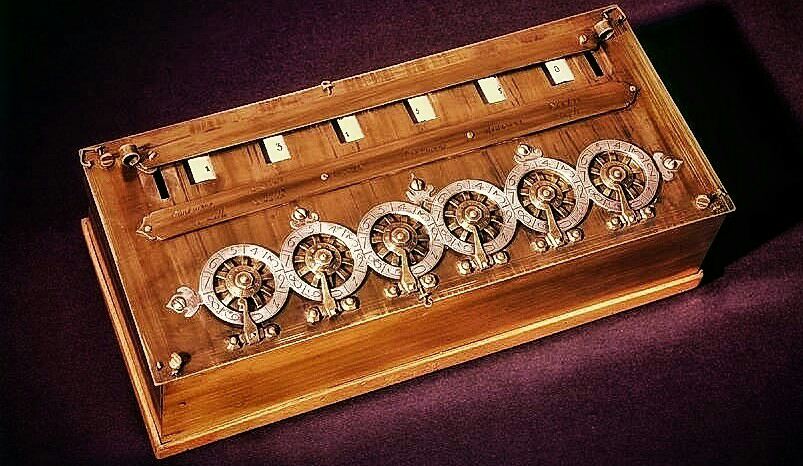
Pascaline is also known as Arithmetic Machine or Adding Machine. It was invented between 1642 and 1644 by a French mathematician-philosopher Biaise Pascal. It is believed that it was the first mechanical and automatic calculator.
Pascal invented this machine to help his father, a tax accountant. It could only perform addition and subtraction. It was a wooden box with a series of gears and wheels. When a wheel is rotated one revolution, it rotates the neighboring wheel. A series of windows is given on the top of the wheels to read the totals.
Stepped Reckoner or Leibnitz wheel
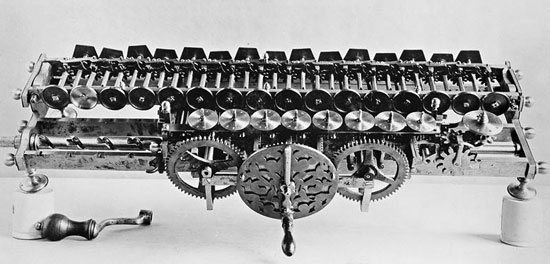
It was developed by a German mathematician-philosopher Gottfried Wilhelm Leibnitz in 1673. He improved Pascal's invention to develop this machine. It was a digital mechanical calculator which was called the stepped reckoner as instead of gears it was made of fluted drums.
Analytical Engine
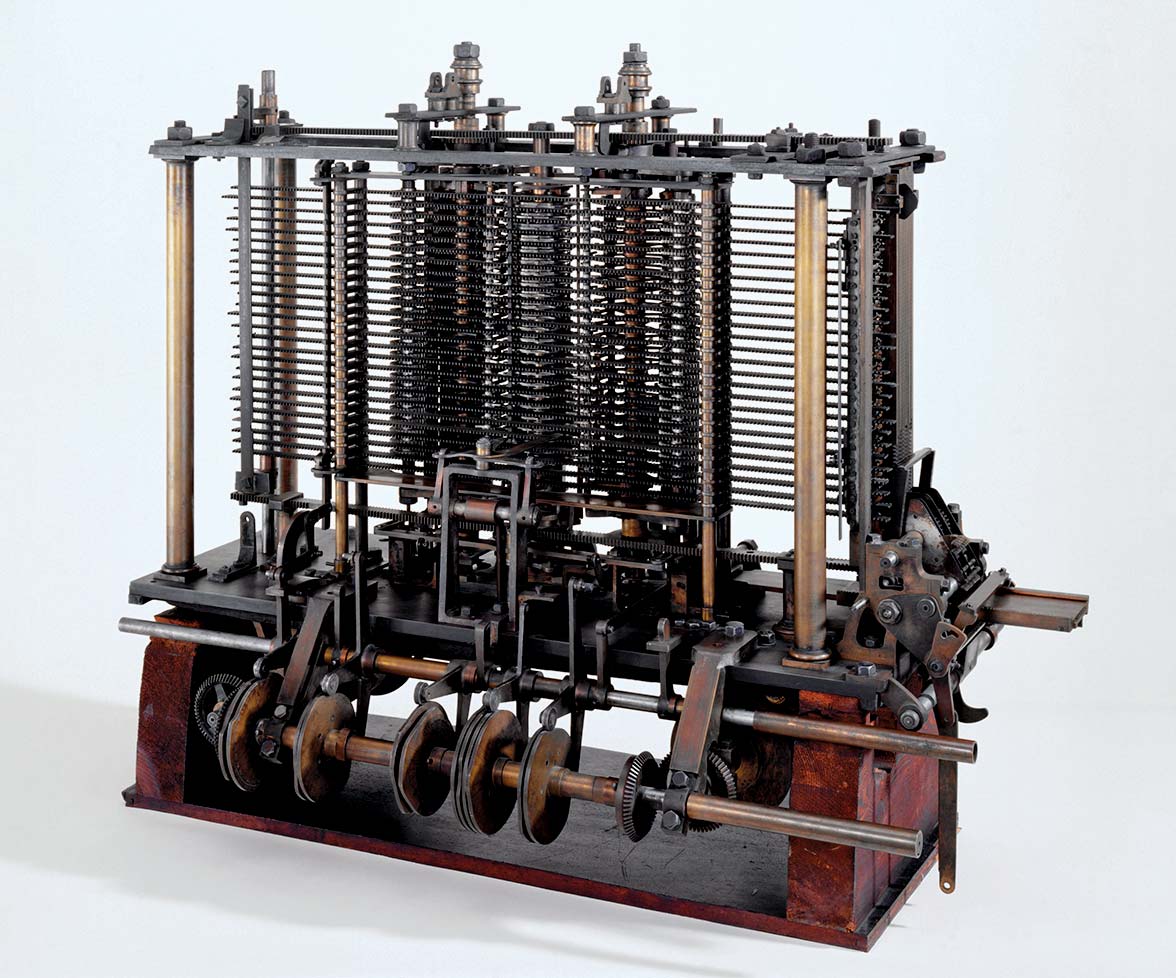
This calculating machine was also developed by Charles Babbage in 1830. It was a mechanical computer that used punch-cards as input. It was capable of solving any mathematical problem and storing information as a permanent memory.
Tabulating Machine
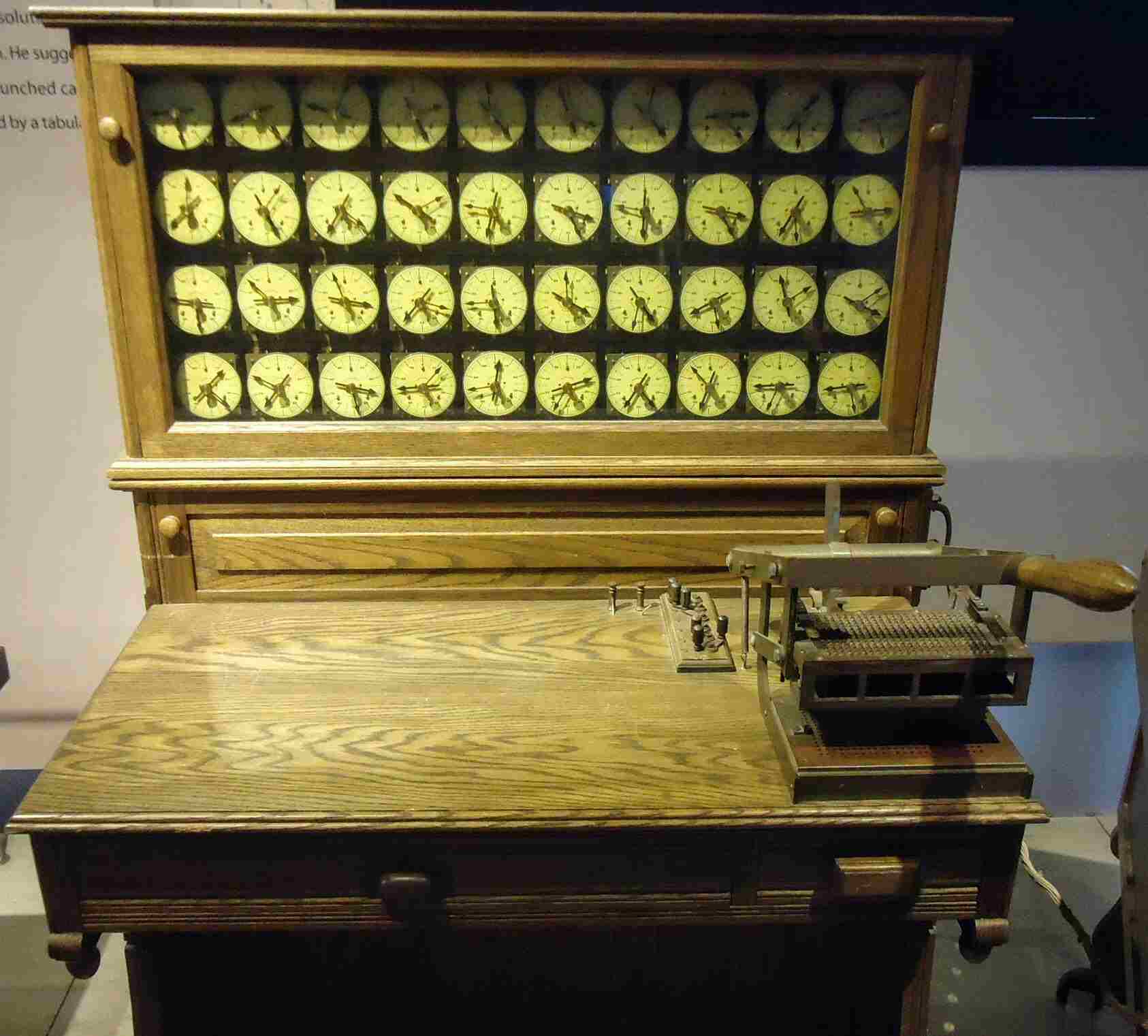
It was invented in 1890, by Herman Hollerith, an American statistician. It was a mechanical tabulator based on punch cards. It could tabulate statistics and record or sort data or information. This machine was used in the 1890 U.S. Census. Hollerith also started the Hollerith's Tabulating Machine Company which later became International Business Machine (IBM) in 1924.
Differential Analyzer
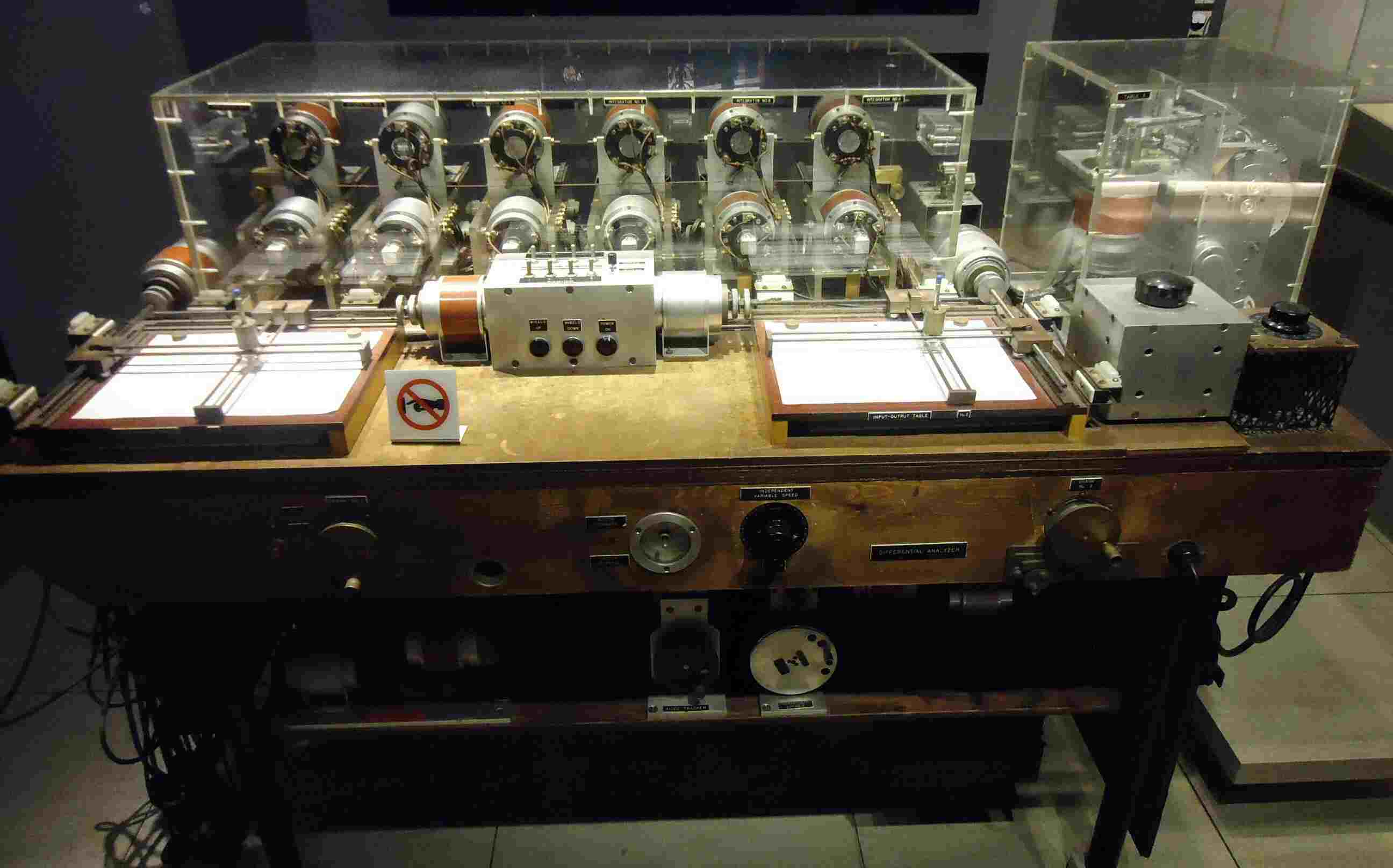
It was the first electronic computer introduced in the United States in 1930. It was an analog device invented by Vannevar Bush. This machine has vacuum tubes to switch electrical signals to perform calculations. It could do 25 calculations in few minutes.
Mark I
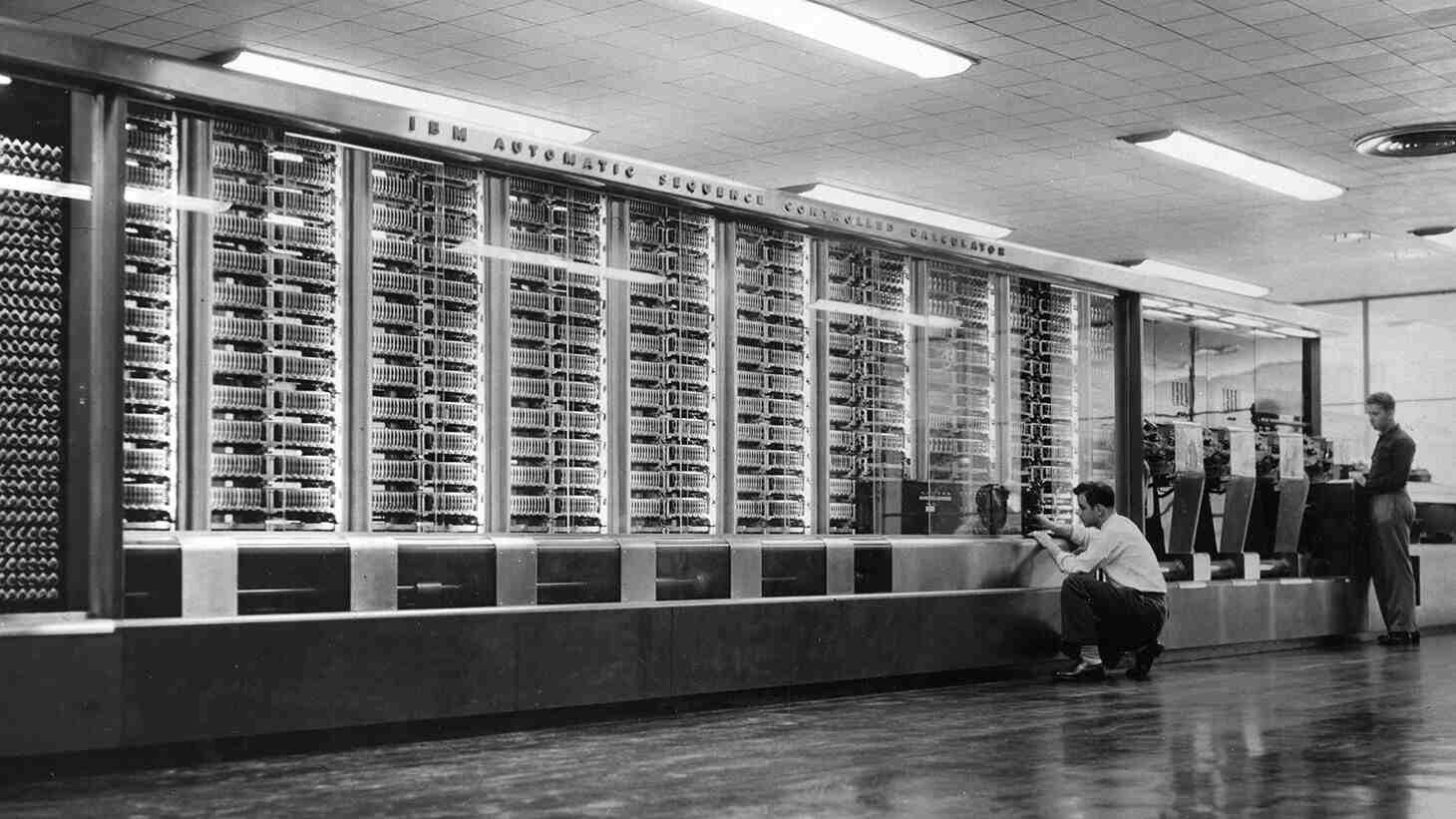
The next major changes in the history of computer began in 1937 when Howard Aiken planned to develop a machine that could perform calculations involving large numbers. In 1944, Mark I computer was built as a partnership between IBM and Harvard. It was the first programmable digital computer.
Modern Computer
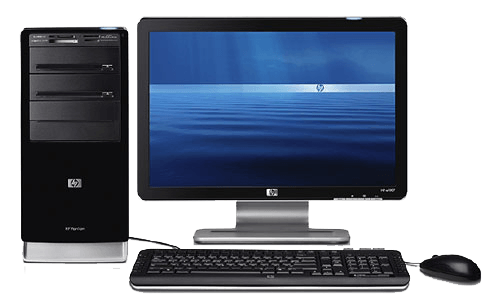
Todays Computers are electronic data processing devices which accepts data as input, processes the data according to a set of instructions, and generates the output in a required format.
The computer and all equipment attached to it are called 'hardware'. The instructions that tell it what to do are called 'software' or 'program'. A program is a detailed set of humanly prepared instructions that directs the computer to function in specific ways.
Uses of Computer
- Research - Computer helps in carrying out research in areas like Chemistry, Biology, Physics, Geography, etc. They are used for collecting, analyzing, categorizing, and storing data.
- Health Care - Computer have become an integral part in hospitals, health facilities, and Laboratories. They are used for scanning and diagnosing various diseases and also for maintaining a database of patients information, treatment records, medical records, live monitoring, X-rays, etc.
- Business - Businesses and companies use a computer to do marketing, business planning, record customer data, and to manage goods and services.
- Entertainment - Computers are one of the best mediums for entertainment. You can use a computer to watch movies, listen to musics, play games, etc.
- Education - Computer helps in providing a lot of facilities in the education sector. Schools and colleges are using computer and internet technologies to teach their students. Seminars and lectures are provide in the form of e-books, podcasts, powerpoint slides, and video formats. Students can learn and acquire skills online at their own convenience and pace. This is one way in which computer is applied to educate people.
- Security - Security intelligence agencies use computerized control systems to monitor and identify terrorists or criminals in public places. Also, computers are used in banks, airports, and homes to serve as security aid. Computer gadget like fingerprint scanner and face-recognition have made it harder for fraudsters to use fake identities.
Advantages of Computer
- Automation - Computer can be programmed to perform actions or complete a task. And once it is done, it can repeat that task as many times as needed.
- High Speed - Todays computers are capable of performing complex calculations of very large amount of data in microseconds with incredible speed.
- Accuracy - Computer provides the accurate result, as long as the input giving to it is correct.
- Storage - Computer has much more storage capacity. It can store large amount of data in different format.
- Diligence - Computer neither get tired nor lose concentration.
Disadvantages of Computer
- Unemployment - Different tasks are performed automatically by using computers. As a result, it reduces the need of people and increases unemployment in society.
- Privacy Violation - The privacy of a person can be violated if the personal and confidential data are not protected properly. Data can also be lost due to damaged memory or as a result of malicious code injected into our computer system which corrupts or destroys the data available on the computer system.
- Health Risks - The improper and prolonged use of computer can results in injuries or disorders of hands, wrists, elbows, eyes, necks and back. Users can avoid health risks by using the computer in proper position. They must also take regular breaks while using the computer for longer period of time.
- Computer Crimes - Malicious hackers use the computer for negative activities. They can break into computers to gain unauthorized access to our personal and confidential records and misuse the information for their benefit.
- Impact on Environment - The computer manufacturing processes and computer waste are polluting the environment. The wasted parts of computer can release dangerous toxic materials. Therefore, the used computers must be donated or disposed off properly.